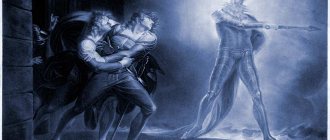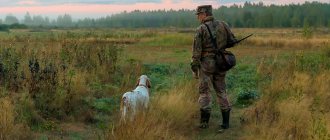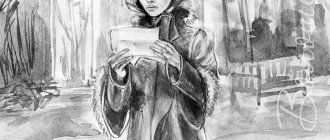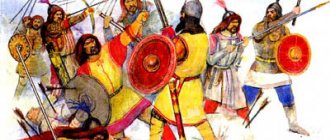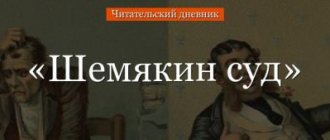Sevastopol in December
At dawn, the first rays of the sun appeared over Sapun Mountain and the still black sea. The bay was covered in thick fog. There is no snow, but it is very frosty. There is silence and silence all around, interrupted by the sound of sea waves and shots from Sevastopol. The realization that you are in Sevastopol fills your heart with pride. Military operations could not disrupt the usual way of life of the city: merchants scurried here and there. Camp and peaceful life have intricately merged together, the feeling is that the residents are worried and scared, but this is not the case. The minds of most of them are filled with everyday concerns, as if they do not even notice the explosions.
Meanwhile, wounded soldiers lie in the city hospital, busy talking. In one of the wards, operations are carried out, and those standing in line for procedures observe horrifying scenes of amputation and discarding of severed limbs. It is here that war appears in its true, ugly light. It is not at all solemn and brilliant, but full of blood, pain and torment. The young officer, who fought in the most dangerous sector, complains not about the mortal danger hanging over all of them, but about the most ordinary dirt. Everyone understands that in this way he protects himself from the panic fear sitting inside.
On the road to the fourth bastion, you see more and more often wounded and crippled soldiers, and less and less - civilians. Despite the bullets whistling overhead and the ground shaking from explosions, the artilleryman, accustomed to many things, is calm. He survived the assault with only military weapons and a small number of personnel. The artilleryman remembers the bomb that killed eleven soldiers in the dugout.
A person experiences fear mixed with a sweet and painful expectation of an explosion, seeing a cannonball rapidly approaching him.
Everyone is convinced that it is impossible to break either Sevastopol or the Russian people. Neither religion nor danger gives strength to survive in hellish conditions. Only love for the homeland, even if rarely manifested in the soul, is capable of this.
Sevastopol in the month of December, please help me retelling
The beginning of Leo Tolstoy's story “Sevastopol in December,” like the entire story, is written in gloomy colors. From the bay under Sapun Mountain it smells cold and foggy, the sea turns black, and an incessant roar can be heard.
Every now and then the roar of shots rolls in. The city is at war. The author immediately notices what pride and what courage fills the heart of everyone who ends up in Sevastopol even in terrible and difficult times.
This city has been a living legend since that distant war.
Despite the clash of guns, some kind of life goes on in Sevastopol. Traders offer pies and drinks, people have adapted to the siege of the city and are engaged in daily activities, without which they simply cannot survive. And at this time something unspeakably terrible is happening on the bastions, something that stirs the blood.
As a great master of detail, Leo Tolstoy shocks with his description of how military paramedics stack the severed body parts of the wounded in a corner of a field hospital. Here lies the amputated leg of a woman, which was torn off by a shell while the wife was bringing lunch to her husband to the bastion. Here are the hands of soldiers who had just held a gun, whose lives were forever crossed out by the war.
The author cites the story of a young officer who was allegedly more annoyed by unsanitary conditions than by bombs flying on his head. But this is just ostentatious swagger; in fact, the young man is very scared.
The most dangerous fourth bastion appears in the story as a crowd of stretchers with dying wounded. Here the assessment of the situation by an experienced artilleryman is drawn in strokes. The entire battery was killed nearby, but the bastion, where only one artilleryman remained behind the gun, kept firing and firing.
Leo Tolstoy does not draw any conclusions of his own. He just describes the confessions of the city’s defenders, and every word breathes a terrible war.
A bomb in a sailor's dugout shredded eleven people. The tenacity and heroism of the soldiers cannot be expressed.
The author admires the sense of disregard for danger and the high feelings of the defenders. At the end of the sketch, he concludes: despite the harsh December, anyone who has visited Sevastopol understands: the enemy cannot take the city.
Sevastopol in May
Six months have passed since the war came to Sevastopol. Thousands of people died. The city is under siege. Military men roam the streets. The reader is introduced to Officer Mikhailov - a tall, stooped man with some awkwardness in his movements. Mikhailov’s memory brings back pictures of his former life, when he was surrounded by completely different people than now. His current friends listened coolly to Mikhailov’s stories about receptions with the governor or general, clearly not believing in their veracity. All Mikhailov now dreamed of was a new title. Walking along the boulevard and wanting to meet the aristocrats of the city, Mikhailov came across guys from his regiment. Shaking hands with them again reminded him that this was not all he wanted.
Despite the siege, there are many people in Sevastopol and a lot of vanity in them. It seems that under flying bullets and with daily explosions vanity should have immediately evaporated, but it is like an incurable disease that has divided people into three categories: those who consider vanity a fair and obligatory phenomenon and willingly submitted to it; those who find it a bad but irresistible vice; and those who were unable to reflect vanity within themselves and therefore unconsciously and blindly obeyed it.
Mikhailov saw the local “aristocracy” and walked around them twice before he decided to come up and say hello. He was scared at the thought that they would ignore him, thereby hurting his pride. The conversation that began immediately revealed some arrogance towards the hero, and later the “aristocrats” stopped noticing him altogether, hinting in every way that he was burdening them with his presence.
On the way home, Mikhailov remembers that the next day he will have to replace the sick officer and go to the bastion, and either he will be killed or receive a reward. He considered his possible injuries for a moment, but reminded himself that the bastion was his duty.
In an expensive, tastefully furnished apartment, Kalugin received “aristocratic” guests. Everyone drinks tea, plays the piano, and talks. Between themselves, away from prying eyes, they behave quite naturally and at ease, but as soon as an officer appeared in the room with a letter for the general, the arrogance and importance that Mikhailov had to face on the boulevard reappeared. Kalugin tells his friends that a “hot” business awaits them ahead. Galtsin wonders if he should go to the bastion to carry out the assignment, fearfully hoping that he will not be sent anywhere. Kalugin begins to dissuade him from this idea, although he himself knows very well about Galtsin’s reluctance and cowardice. On the street, Galtsin asks all passers-by about the progress of the battle, not forgetting to scold the retreating troops. Kalugin goes to the bastion, diligently showing everyone his fearlessness. He is disappointed with the battery commander, who is famous for his bravery, but in reality demonstrates only cowardice. Kalugin wants to inspect the bastion and weapons, but the commander, realizing that this is risky, sends a young officer with him instead.
The general orders Praskukhin to inform Mikhailov about the redeployment. The order was carried out, and at night the battalion moved out under enemy fire. Mikhailov and Praskukhin only care about the impression they make on each other. Here a heavy bombardment begins, and one of the shells kills Praskukhin. Mikhailov was wounded in the head, for which he was given a reward, and instead of bandaging the wound, he crawls back to Praskukhin, not being sure of his death. Having found his body, Mikhailov returns.
The flower-strewn valley was covered with bloody corpses. The sun rises again over Sapun Mountain and a thick fog falls.
The very next day, walking along the same boulevard, the “aristocracy” boasted of their bravery and talked about their direct participation in the battle. Each of them was like Napoleon, ready to kill hundreds more people for the sake of a raise in salary or a new rank.
Russia and France declared a truce. The soldiers began to communicate with yesterday's enemies, forgetting about their hatred and hostility. The officer talks to the Frenchman about the cruelty of war, and each of them recognizes the sharp mind of the other. A little boy walks through a field strewn with bodies and white flags, picking flowers. All these people are Christians who know about love for their neighbor. But they will not fall to their knees, repenting before God for their actions, and they will not hug each other, asking for forgiveness for the murders. As soon as the truce ends, they will also raise their weapons and point their muzzles at each other.
Brief summary of Tolstoy Sevastopol in December
The beginning of Leo Tolstoy's story “Sevastopol in December,” like the entire story, is written in gloomy colors. From the bay under Sapun Mountain it smells cold and foggy, the sea turns black, and an incessant roar can be heard. Every now and then the roar of shots rolls in. The city is at war. The author immediately notices what pride and what courage fills the heart of everyone who ends up in Sevastopol even in terrible and difficult times. This city has been a living legend since that distant war.
Despite the clash of guns, some kind of life goes on in Sevastopol. Traders offer pies and drinks, people have adapted to the siege of the city and are engaged in daily activities, without which they simply cannot survive. And at this time something unspeakably terrible is happening on the bastions, something that stirs the blood.
As a great master of detail, Leo Tolstoy shocks with his description of how military paramedics stack the severed body parts of the wounded in a corner of a field hospital. Here lies the amputated leg of a woman, which was torn off by a shell while the wife was bringing lunch to her husband to the bastion. Here are the hands of soldiers who had just held a gun, whose lives were forever crossed out by the war.
Sevastopol in August 1855
Officer Mikhail Kozeltsov, having been wounded, was treated in the hospital, and now he returned to the battlefield. The military man aroused respect from everyone with his independence, integrity, sharp mind, talent, and, moreover, he was a master at drawing up various kinds of documents. He was not alien to pride, which had already firmly merged with his character.
There is pandemonium at the station: there is not a single horse or cart. Many military personnel were left completely without money and cannot leave. Standing at the station along with everyone else is Vladimir Kozeltsov, the hero’s brother. He was predicted to have a brilliant military career in the guard, however, Volodya suddenly decided to go into the active army. He, like any young man in the war, had hot blood in him, and he couldn’t wait to join his brother in the battle for his homeland. He felt a sense of pride in his older brother, and even a little shyness in front of him. Mikhail invites his brother to go with him to Sevastopol, but the guy no longer wants to fight so zealously, and besides, he doesn’t know how to talk about his unpaid debt of eight rubles. Kozeltsov takes out his last savings and pays off his brother’s debt, after which they set off. All the way, Volodya indulges in romantic dreams about his undoubtedly heroic death on the battlefield and the exploits that he and his brother will manage to accomplish for the sake of the Fatherland.
Arriving in Sevastopol, they first go to a booth, where they see a military man pouring out money in front of him and counting it for the new commander. Everyone is wondering why Vladimir left a safe place and came to the very thick of the war. The brothers decide to spend the night with Mikhail in the bastion. Before that, however, they go to see an old comrade who was in such bad shape that he looked forward to death as a release from pain. Having left the walls of the hospital, the brothers disperse: Vladimir goes to his battery, where they found a place for him to stay for the night. At night, the guy is overcome by fear of either the darkness or approaching death. Exploding shells could be heard all around, and he was able to get rid of anxiety and fall asleep only after prayer.
Mikhail is placed under the subordination of his old comrade, who once fought with him on an equal footing and has now become a commander. The commander feels dissatisfied with Mikhail's return, but nevertheless transfers command of the company to him. The company, on the contrary, rejoices at Kozeltsov, the officers greet him warmly and show their respect, empathizing with his injury.
The next day the explosions became more frequent and the bombing intensified. The artillery officers accepted Volodya into their circle, and he himself felt sympathy for them. Junker Vlang felt great affection for the ensign, anticipating all Vladimir’s wishes. Suddenly, Caruth, a German by origin, who speaks fluently in excellent Russian, returns from the fighting positions. The conversation between the men drags on, and the German starts talking about high-ranking thieves taking advantage of their position. Volodya became embarrassed and began to confusingly explain that he considered such a dishonest and vile deed, and he himself would never stoop to such a thing.
During the commander's luncheon, everyone continues to talk, not paying attention to the meager menu. A letter arrives from the artillery chief demanding that one of the officers be sent to Malakhov Kurgan. It was a dangerous area, and no one expressed a desire to go there to the battery. Some of the guys call Vladimir the ideal candidate. Having doubted and argued a little, Volodya agrees. Vlang is sent with him. Having no experience in combat, Volodya begins to study books and manuals on artillery battles, hoping that this will help him in battle. Arriving at the battery, he realizes that the whole theory is not applicable in practice: the real battle takes place according to its own rules, different from those in the books, there is not a single worker in the area called upon to repair damaged weapons, and even the weight of the shells does not coincide with that indicated in the manual. Two guys from Volodya’s team are wounded, and he himself almost dies. The soldiers take cover. If Vlang began to panic, and he could only think about how to avoid his death, then Vladimir even felt happy about everything that was happening. Melnikov was firmly convinced that he would not die on the battlefield, and this made him not afraid of exploding bombs and flying bullets. Vladimir likes him, and soon other soldiers join the general conversation, during which everyone talks about when the allied troops led by Prince Constantine will come to them, how all the military will be given a break and a short truce will be declared, how a month in the war will be equal to a year in peaceful land... Vlang is still scared and wants to prevent Volodya from leaving the fortification, but he still goes out into the fresh air, where he will remain all night, talking with Melnikov. He completely forgot about the mortal danger hanging over them all, and thought only about his courage and diligence.
In the morning the French began to storm. Volodya, who has just woken up and had slept nothing at all, is one of the first to grab a weapon and rush into battle, fearing to be branded a coward. His cry and spirit were able to raise the morale of the soldiers, but Kozeltsov was immediately wounded in the chest and he lost consciousness. Opening his eyes, Vladimir sees a doctor silently bending over his wound and wiping his dirty hands. The doctor asks to send a priest. Volodya asks if we beat the French, and the priest, fearing to upset the dying man, speaks of the Russian victory, although the French banner was already flying on the Malakhov Kurgan. Great happiness and pride filled Kozeltsov, tears of delight flowed down his face, because he felt his involvement in this victory and knew that he had fulfilled his duty to the end. He thinks about his brother Mikhail, wishing him the same happiness.
The author talks about the stupidity and illogicality of war as such. A much more reasonable solution to a military conflict seems to be a fair battle between two soldiers - one on one, and not thousands on thousands. According to Tolstoy, either war is madness, or all people are stupid and not at all reasonable.
Lev Tolstoy
Rate this piece:
- 2.75
Votes: 64
Read summary Sevastopol stories. Brief retelling. For a reader's diary, take 5-6 sentences
Sevastopol stories summary
The collection “Sevastopol Stories” by Tolstoy, written and published in 1855, is dedicated to the defense of Sevastopol. In his book, Lev Nikolaevich describes the heroism of the city’s defenders, and also shows the senselessness and mercilessness of the war.
For a reading diary and preparation for a literature lesson, we recommend reading online a summary of “Sevastopol Stories” chapter by chapter .
Main characters
Mikhailov is a staff captain, a reasonable, decent, ambitious man. Mikhail Kozeltsov is a lieutenant, a brave and honest officer. Vladimir Kozeltsov is Mikhail’s younger brother.
Other characters
Summary
Sevastopol in December In December 1854, Sevastopol is still not covered with snow, “but the sharp morning frost grabs your face and cracks under your feet.” The military morning begins with the usual “resonating shots”, changing of sentries, and bustle on the pier. The air is filled with the smells of “coal, manure, dampness and beef.” Retired sailors offer their services as ferrymen in their small skiffs. When you think about being in Sevastopol, your soul is filled with “feelings of some kind of courage, pride.” Local residents have long been accustomed to the sounds of gunfire and do not pay any attention to them. They only indifferently comment among themselves on which area the shells exploded, and from which “battery it’s firing now.”
Sevastopol in May
Chapters 1-3 The war for Sevastopol has been going on for six months. During this time, “thousands of human pride managed to be offended, thousands managed to be satisfied and pout, thousands managed to calm down in the arms of death.” Diplomats are not able to resolve the conflict, but it is much more difficult to resolve it through military action. People who support and incite war cannot be considered rational creatures, since “war is madness.” Staff Captain Mikhailov walks around the city, on whose face one can read “dullness of mental abilities, but at the same time prudence, honesty and a penchant for decency.” In addition to money and awards, he passionately dreams of entering the circle of the military aristocracy and being on friendly terms with Captain Praskukhin and Lieutenant Colonel Neferdov. Approaching the pavilion with music, Mikhailov wants to say hello to representatives of the highest military society, but does not dare to do so. He is afraid that the “aristocrats” will simply ignore him, and thereby inflict a painful sting on his pride. The air in Sevastopol literally rings with vanity: it is everywhere - “even on the edge of the coffin and between people who are ready to die because of their high convictions.”
Chapters 4-9 Arriving home, Mikhailov begins to “write a farewell letter to his father” - soon he will have to go to the bastion, for the thirteenth time. He is tormented by bad premonitions, and he involuntarily lashes out at his old servant Nikita, whom he “loved, even spoiled, and with whom he had lived for twelve years.” “Already approaching the bastion with the company at dusk,” the staff captain reassures himself that, if he’s lucky, he will only be wounded and he will remain alive.
Chapters 10-14 Mikhailov commands a company and soon receives an order for redeployment from the general, which Praskukhin conveys to him. During the company's movement, Mikhailov and Praskukhin care only about the impression they make on each other. During the heaviest bombing, Praskukhin was killed “by a shrapnel in the middle of the chest,” while Mikhailov was “slightly wounded in the head by a stone.” Realizing that with “a wound, staying in business is certainly a reward,” Mikhailov refuses hospitalization. After the battle, the flowering valley is covered with hundreds of corpses.
Chapters 15-16 The day after the battle, the military aristocrats, as if nothing had happened, stroll along the boulevard, bragging to each other about their heroism. “White flags are displayed between the warring armies,” ordinary soldiers communicate with each other without hatred. But as soon as the white flags are hidden, “the instruments of death and suffering whistle again, innocent blood flows again and groans and curses are heard.” Sevastopol in August 1855
Chapters 1-5 At the end of August 1855, a cart is driving along the Sevastopol road, in which Lieutenant Mikhail Kozeltsov is sitting. The officer returns to besieged Sevastopol after treatment in the hospital. Kozeltsov was “not stupid and at the same time talented, he sang well, played the guitar, and spoke very smartly.” But his main feature is exorbitant pride. There is no crowd at the station - there is not a single free horse or cart. Many officers found themselves completely without money. They are offended that “it’s already so close, but they can’t get there.”
Chapters 6-7 At the station, the lieutenant unexpectedly meets his younger brother, seventeen-year-old Volodya Kozeltsov. The young man was predicted to have a brilliant career in the guard, but he chose to join the ranks of the active army. He felt “ashamed to live in St. Petersburg when people are dying for the fatherland here,” and he also wanted to see his brother, whom he was proud of and admired. Mikhail calls Vladimir with him to Sevastopol, but he begins to hesitate. It turns out that the young man, like many other military men at the station, does not have free money, moreover, he owes eight rubles. The elder Kozeltsov pays off his brother’s debt.
Lev Tolstoy. Brief summaries of works
- Shark
- Albert
- Anna Karenina
- Poor people
- Battle of Borodino (War and Peace)
- Bulka
- Power of darkness
- The power of darkness, or the claw is stuck, the whole bird is lost
- War and Peace
- War and Peace Volume 1
- War and Peace Volume 2
- War and Peace Volume 3
- War and Peace Volume 4
- War and Peace Epilogue
- Resurrection
- Chapter Natalya Savishna (Childhood)
- Two brothers
- Two hussars
- Two comrades
- Childhood
- Confession
- Prisoner of the Caucasus
- Cossacks
- How geese saved Rome
- Kitty
- Kreutzer Sonata
- Lion and dog
- Lipunyushka
- Eagle
- walnut branch
- Father Sergius
- Boyhood
- Excerpt from Petya Rostov from the novel War and Peace
- Fire
- After the ball
- Bounce
- Birdie
- Sevastopol stories
- Fairy tale Three Bears
- Death of Ivan Ilyich
- Old grandfather and grandson
- Three deaths
- Philippok
- Hadji Murat
- Canvas meter
- How people live
- Youth

